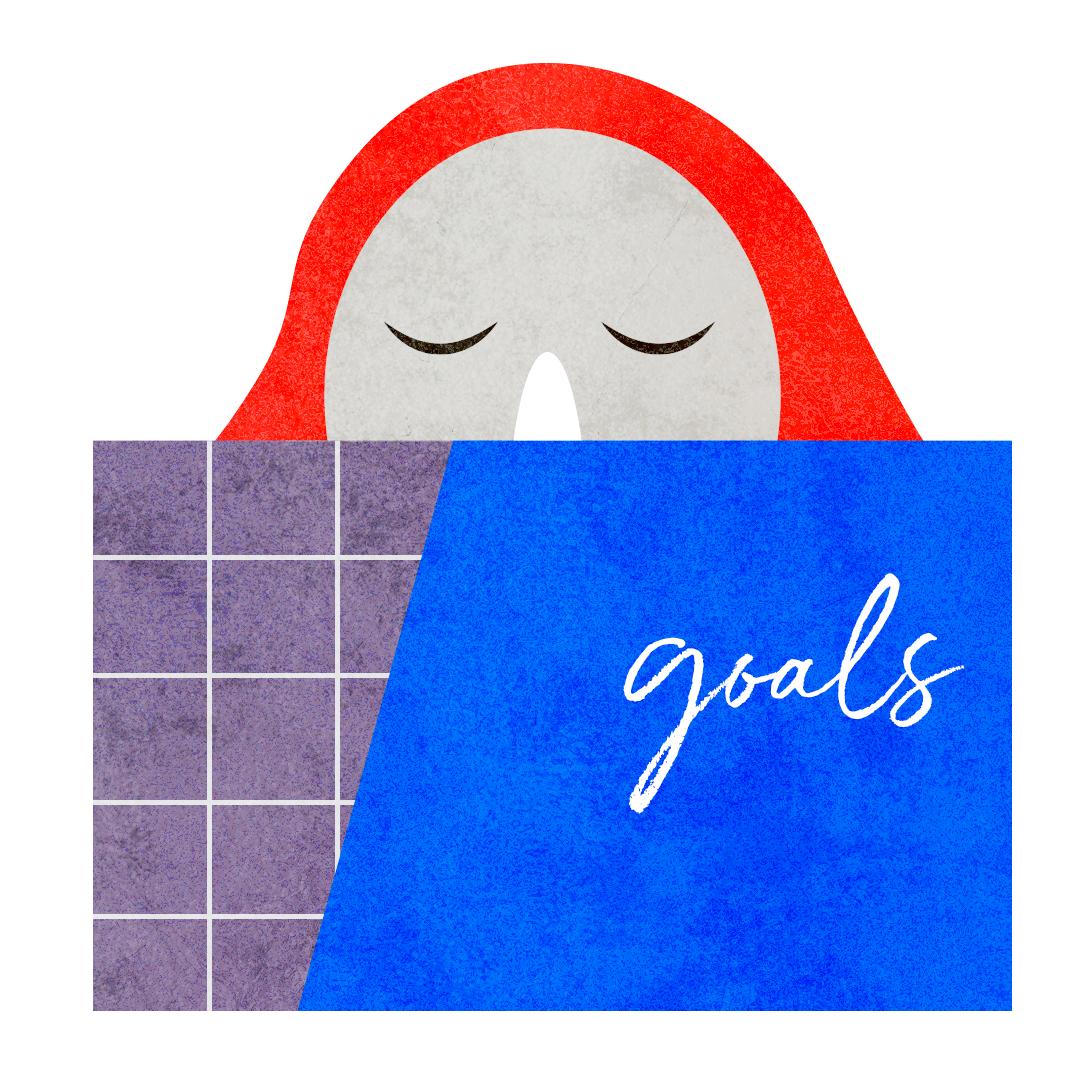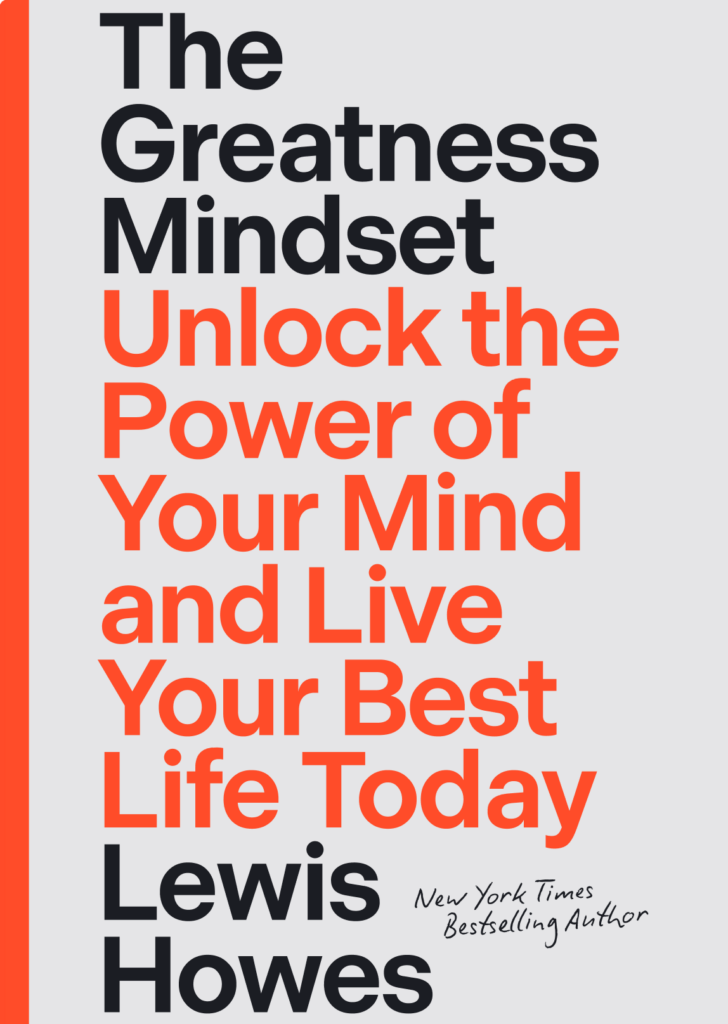
The Evolution of New Year’s Resolutions: What Science Says About Setting New Goals
There’s something magical about the beginning of a new year.
It’s exciting to conjure up new goals for the future, imagine where we’ll be in a few months’ time, and maybe even make a bucket list for everything we hope to experience in the coming year. That sense of hope is powerful.
However, that same hope can quickly deflate in the face of disappointment — especially disappointment with ourselves. Unfortunately, the classic “New Year’s Resolution” list, more often than not, can set us up for failure. While we may start off strong, research indicates that we don’t tend to stick with our goal in the long run, especially during periods of stress or when emotions are running high.
Of course, this can be really disheartening. Realizing that you’ve lapsed on yet another resolution can really take the wind out of your sails.
But have you ever considered that maybe our approach to resolutions needs an upgrade? How relevant are these New Year’s Resolution lists after all? Is there a way to tweak our mindset and approach to set us up for more success before we do something drastic like give up on our dreams?
Achieving our goals is an art and a science, and instead of flying blind, we need to look at examples of how to successfully enact change in our lives. In addition to examples, we have science and research on our side. By examining what works, what doesn’t, and why, we can find an approach that’s more effective and maybe even more enjoyable.
In this article, you’ll learn how to successfully implement healthy habits for the new year so you can truly reap the benefits of goal setting.
Tune in to Your Real Desires and Needs
First off, let’s take a look at what types of resolutions we set in the first place.
If we’re making resolutions based on what we think we should want instead of what we actually want, we’re not going to be as effective because, on some level, a part of us will resist.
Maybe we think we should get a promotion, but deep down, we’re really not all that excited about our job. Maybe we think we should start dating again, but on some level we know we’re not ready. We’re all unique individuals, so social markers of success based on external validation won’t satisfy us for long.

We all have our own process too. We all think differently, learn differently, and make changes differently. When it comes to resolutions and how you achieve them, be true to yourself.
Before you start making resolutions, ask yourself if your goals truly reflect what you want, what would really be helpful to you, and what would make you happy and healthy. We can’t change everything all at once, and change takes effort and energy, so be selective with what you prioritize.
If needed, take some time to reflect on your life before you start making resolutions. You can refer to this list of questions for inspiration.
Reflection Questions:
- What is most important to me?
- Which past experiences have brought me the most joy?
- Which ones made me unhappy and derailed my plans?
- What are my talents, and how can I use them more?
- What is wasting my time?
- What is worth my time?
- What truly makes me happy?
- Where do I want to be in five years?
- What’s getting in the way of me being healthy?
- What’s getting in the way of me being happy?
Focus on What You Want, Not What You Don’t Want
Here’s some really good news: Making resolutions based on what we want to gain in our lives often works better than making those based on what we don’t want to lose. It turns out that positive feelings (such as doing something new) work better than feelings of loss or being deprived (giving something up).
Just think about how you feel when you look at something on your list of resolutions. It’s likely that “starting a cooking blog” generates more feelings of happiness and anticipation than “reduce consumption of carbs” does. That positivity is powerful, and there’s science to back it up.
A 2017 study at Stockholm University tracked resolutions of 1,066 subjects who made two types of goals: avoidance goals and approach goals. Avoidance goals were characterized by giving up something like sweets, alcohol, or social media. Approach goals were characterized by doing something new, like exercising a few times a week or having a green smoothie every day.
The study found that participants were 25% more likely to stick with their resolutions when they were approach goals.
It turns out that while summoning up the motivation to get to the gym can be a challenge, it’s easier to do than having a big gap or a loss in your life like cutting out pizza. So, try new things more than you try to eliminate things.
If you do need to give something up, be sure to have something new and pleasurable to replace it with — maybe it’s an evening walk under the stars instead of hours of Netflix before bed.
You should also adjust your thinking to focus on positive gains. Let’s say you’re cutting down on alcohol. If you constantly think about how you “don’t get” to drink at the end of a long day, flip your thinking and think about how you’re gaining better health, better skin, better sleep, and a greater sense of self-control.

The Greatness Mindset
Learn the secrets of some of the greatest minds in the world. Unlock the power of your mind and live your best life today.
Learn MoreSet Your Intentions Rather Than Making Resolutions
In some ways, making resolutions sets us up for failure.
A resolution is exactly how it sounds — you resolve to do something. There’s not a lot of gray area, and there’s a feeling of finality to it.
It also sounds a little harsh. A resolution often means that you must change something because something is wrong. It doesn’t generate feelings of happiness and positivity — in fact, it does just the opposite.
Intentions are different. Intentions put you back in the driver’s seat, where you’re creating your dream life. Intentions let you focus on the process. The journey is as important as the destination, and the detours and “mistakes” are often fuel for even greater growth.
Intentions (or goals) have wiggle room. There’s room for error, and if there’s anything we’ve learned over time, it’s that we’re going to make mistakes. If you break a resolution, you might feel like you’ve failed. But if you’re simply on the path toward a goal or intention, you can put that mistake into the bigger picture context.
Putting too much pressure on yourself won’t do you any good. Do you really need another resolution to stress you out when you’ve already got a never-ending to-do list and you’re living in a world that’s guaranteed to throw you curveballs?
Take things slower and make change easier by opting for intentions or goals instead of resolutions.
Track Your Progress and Celebrate Your Wins
A key part of staying motivated is clearly tracking your progress — by journaling, using an app, or some other method — so you can see how far you’ve come.
You also want to celebrate, in big or small ways, when you hit major milestones. Remember, positive feelings are a powerful motivator when it comes to goal setting. Celebrating wins works so much better than worrying or complaining about all you have to do.
Plus, having tangible data that demonstrates how you’re doing, how far you’ve come, and what’s still ahead of you is powerful. A 2015 study found that monitoring progress via exercise apps motivated people to stay on track with their fitness goals.
This completely makes sense. Seeing those steps keeps you going, and when you’re on a step streak, you don’t want to break it! The same goes for a sleep tracker, which shows you exactly how the cardio you did that afternoon helped you get rest at night.
When you have robust data to look at, you also have tangible insights to help you figure out what works and what doesn’t. This makes you more efficient, effective, and ultimately, more successful.
Be Realistic
Now that we’ve discussed how having a positive attitude can help you, let’s take a look at the other side of the coin. It’s important to be realistic about what implementing your intentions will actually look like.
So while you want to cultivate feelings of hope and excitement, you should also look at how those changes will look in your day to day life. You’ll need to look at how you’ll do something, when, and where. This means that as you implement new things, you’ll need to adjust your schedule.
If you want to go hiking every Saturday morning, you probably can’t stay out all night the evening before. If you want to go for a walk before work, you’re going to miss out on some sleep. We all have limited time, so when some of it gets filled, we have to make some sacrifices.
The good news is that you can strip away many of the time-wasters that probably weren’t doing you much good anyway. You may say you don’t have time for things, but all those minutes of quick Facebook scrolling on your breaks add up.
By filling your schedule with new, healthy, positive activities, the bad habits you have may naturally fall away without you having to tackle them specifically. And the more easily those habits fall away, the more motivated you will be.
Join In 200 Million+ On The Journey to Greatness
Choose Timing That Works for You
As we’ve covered, hope is a powerful motivator. That’s why the “New Year, New You” phenomenon is so widespread. Studies have shown that we tend to think of time in “chapters” rather than as a continuous stream of events. A new chapter feels like a new beginning, whether it’s the first day of the year, the week, or the month.
But we know that change can happen at any moment. We don’t need to conform to anything outside of us when it comes to starting the process of change. So if you’re not feeling motivated at the start of the year, rest assured that you can have a new beginning whenever you choose.
Wherever you begin, you can reap the benefits of having that “fresh start” mindset. Some research indicates that simply framing things in a way that promotes a feeling of a new chapter can help us be more successful. If you missed your window of opportunity for Dry January or a 30-day step streak, don’t sweat it. Adjust your mindset, pick a new start date, and go for it.
For example, plan out some goals on a Sunday evening, and look at the new week as a new beginning, or start fresh at the beginning of the month. Seasons make good markers, so maybe you want to wait until spring when you’re more energized and the natural world is waking up. And don’t forget that every morning is a brand new day and a chance to step into alignment with your purpose.
You Can Set Intentions That You Actually Stick With
There are few feelings as enticing and magical as the feeling of a fresh start, but if you keep setting resolutions that don’t stick, it’s time to update your goal-setting process. First, aim for intentions or goals rather than resolutions. It takes the pressure off and honors the fact that change is a process. Be true to you and your authentic desires. Try to make your intentions hopeful and filled with joyful, life-affirming new activities, rather than a list of forbidden activities. Celebrate wins, and track your progress. With a little realism and planning, you can succeed and overcome obstacles.
Cheers to an empowered, happy, and healthy new year!
Greatness Authors
Greatness Authors is a collection of writers, thinkers, curiosity experts, and students of the world who are committed to bringing you the most up-to-date, impactful, and inspiring information surrounding Greatness topics.

Redefining Poetry: How Instagram Sensation Rupi Kaur Showed That Poetry Is for Everyone

The 7 Best Vitamins to Naturally Promote Better, Uninterrupted Sleep According to Shawn Stevenson

The Science of Forming Healthy Habits & Letting Go of Bad Ones, According to Author James Clear

9 Signs You Have Imposter Syndrome at Work and How to Overcome Performance Insecurity

Olympian Yusra Mardini’s Incredible Story of Resilience, Rescue, and Refugee Rights











